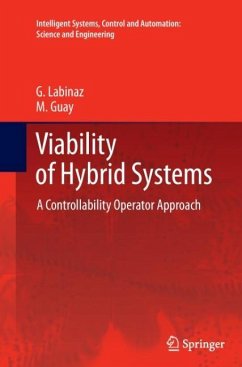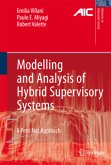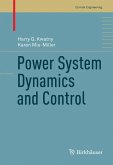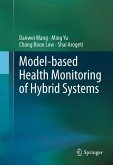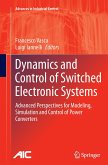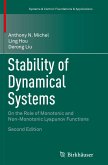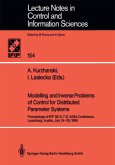The problem of viability of hybrid systems is considered in this work. A model for a hybrid system is developed including a means of including three forms of uncertainty: transition dynamics, structural uncertainty, and parametric uncertainty. A computational basis for viability of hybrid systems is developed and applied to three control law classes. An approach is developed for robust viability based on two extensions of the controllability operator. The three-tank example is examined for both the viability problem and robust viability problem.
The theory is applied through simulation to an active magnetic bearing system and to a batch polymerization process showing that viability can be satisfied in practice. The problem of viable attainability is examined based on the controllability operator approach introduced by Nerode and colleagues. Lastly, properties of the controllability operator are presented.
The theory is applied through simulation to an active magnetic bearing system and to a batch polymerization process showing that viability can be satisfied in practice. The problem of viable attainability is examined based on the controllability operator approach introduced by Nerode and colleagues. Lastly, properties of the controllability operator are presented.
From the reviews: "This book considers hybrid systems with uncertainties and state constraints. ... it provides an interesting approach to viability problems with uncertainties and it explains the relations to other concepts of hybrid systems very well. ... I recommend that the reader focus on the key notions behind each step of conceptual or algorithmic extension. ... this book will provide interesting new insights into the broad field of hybrid systems." (Thomas Lorenz, Mathematical Reviews, January, 2013)

